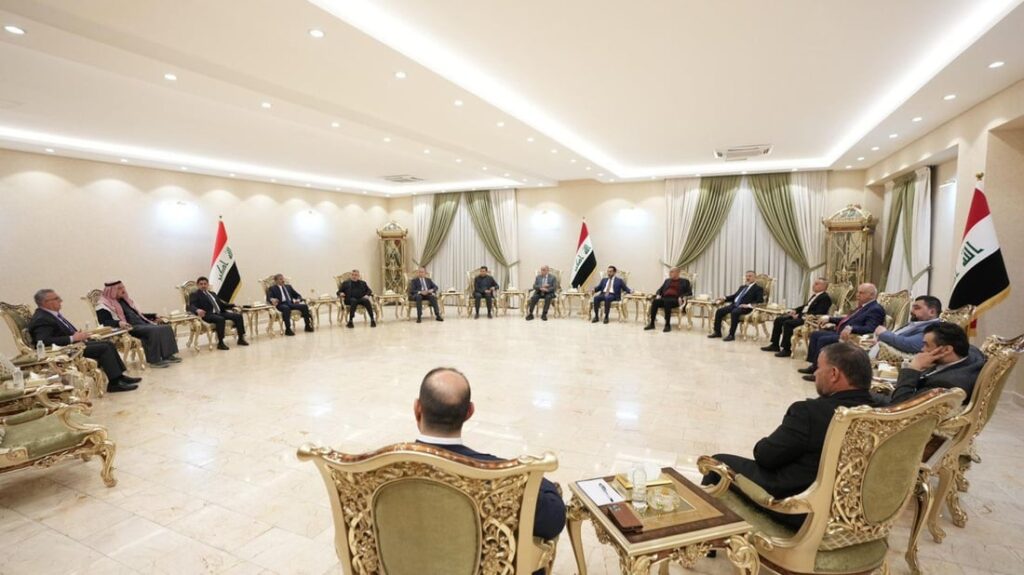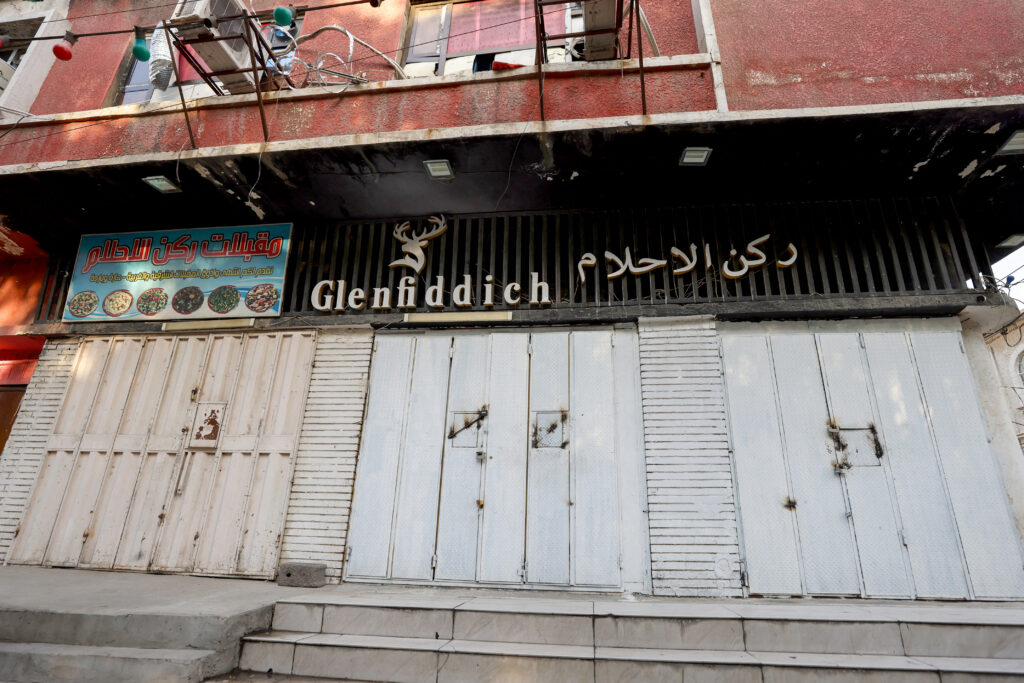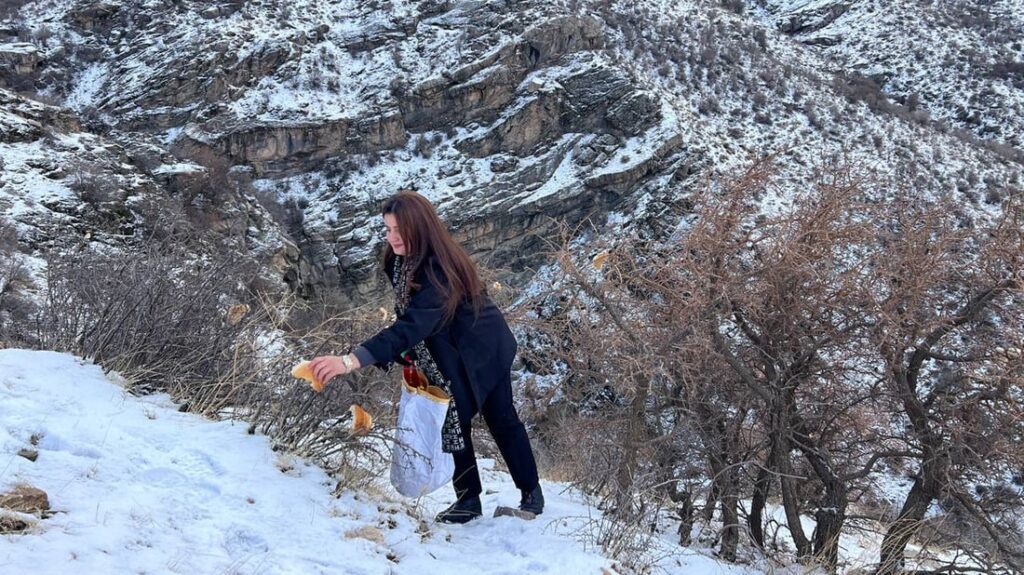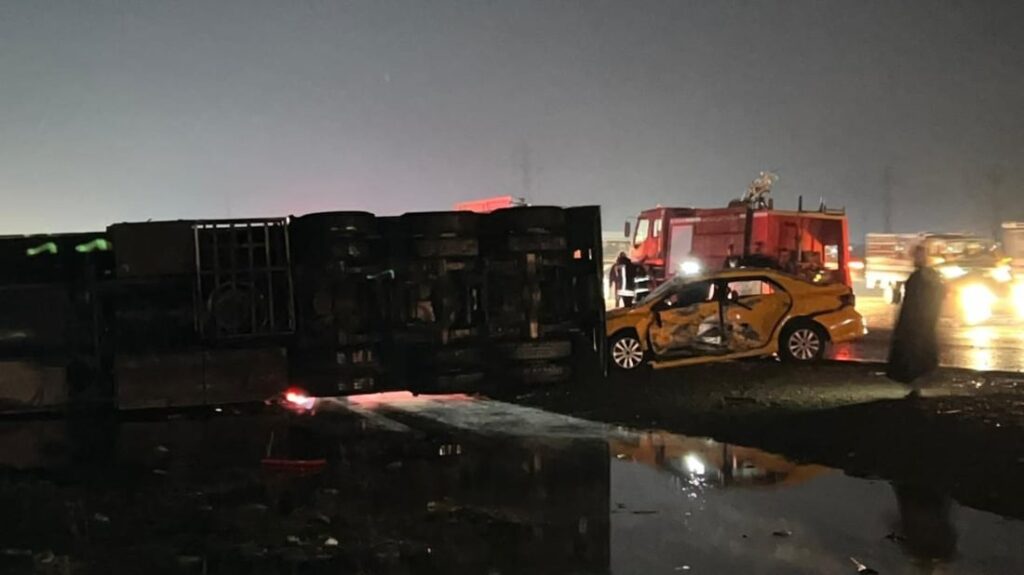Yazidi survivor still hears brothers before Islamic State kills them in Iraq

UNITED NATIONS,— A survivor of the mass slaughter of the Yazidi minority in Iraq five years ago told the U.N. Security Council on November 26 that he still hears his brothers and nephews calling his name before they were killed by Islamic State extremists — and he hears the screams of his wife and three daughters when the militants kidnapped them.
United Nations investigators have so far identified 160 Islamic State militants accused of massacres of Yazidis in northern Iraq in 2014 and are building legal cases against them, the head of the team told the U.N. Security Council
The man, who was identified only as Kachi, said he is “still suffering from psychological harm” and “my life is extremely hard.”
But Kachi said in a video briefing that he believes he survived, “under a pile of dead bodies … by God’s will, to be a witness to the hideous crimes committed by the terrorist group” against the Yazidis.
He urged the international community not only to ensure that the perpetrators are prosecuted but to “acknowledge that the crimes committed against the Yazidi community amount to genocide.”
Kachi spoke at a council meeting on activities of the U.N. investigative team promoting accountability for crimes committed by the Islamic State extremist group in Iraq. Diplomats said he used only his first name for fear of reprisals.
Extremists from the Islamic State group, also known as Daesh and ISIL, rampaged through the Sinjar region of northern Iraq in August 2014, destroying villages and religious sites and shooting men and elderly women before kidnapping women and children and selling them in slave markets.
Kachi said he was living in Kojo when “terrorist gangs of Daesh took control over Sinjar and its villages” on Aug. 3, 2014.
Tens of thousands of Yazidis fled to the Sinjar mountains, but some 7,000 Yazidi women, children and men were killed or captured that day, he said.
Kojo was besieged for 12 days, until Aug. 14, 2014, when large numbers of militants entered the village, initially taking people to a school, robbing all their belongings, and then taking all the men — about 400 — to different locations on the outskirts near its orchards and farms, Kachi said.
“Later, they started shooting at us while shouting, `God is the greatest, Alahu Akbar,’ while carrying ISIL flags,” he said.
When they finished firing, they left for another place, he said.
Kachi said he was slightly injured, but alive under a pile of bodies.
“When I opened my eyes I saw three of my brothers. They were next to me. They were dead. So were my nephews and cousins,” he said.
“I managed to run away for fear of being killed by ISIL,” Kachi said. “I left the remains of my brothers and their children in that mass grave.”
“After all the men were killed, ISIL kidnapped the women, girls and children, around 850 of them, took them to the east of Sinjar,” he added.
“They separated the elderly women from the rest, around 77 women including my stepmother who was 90 years old. ISIL killed those elderly women or buried them alive in a mass grave,” Kachi said.
Then, he said, they took the rest of the women, including his wife and three daughters, and sold them in slave markets in Iraq and Syria.
“Today, I speak before you as I have lost around 75 members of my family and my brothers’ families who were killed at the hands of ISIL,” Kachi said.
Only 19 of Kojo’s 1,250 residents survived, he said.
Even though five years have passed, “I can still remember the remains of my brothers and my nephews. And I can still hear them calling my name … and I can still hear my wife and my daughters screaming when the members of ISIL kidnapped them.”
Kachi said his youngest daughter, Lara, who was 3 months old, died in captivity “because of thirst and hunger.” He did not say where he was speaking from, or what happened to his wife and two other daughters.
Despite the rout of Islamic State extremists, Yazidis say they are still unable to return to Sinjar or locate hundreds of their women and children enslaved by the militant group.
Karim Khan, who heads the U.N. investigative team, told the Security Council that the courage of survivors who come forward underlines the urgency of the team’s work to help ensure “those who inflicted their suffering will be held accountable.”
A year after the team’s arrival in Iraq, he said there has been significant progress in collecting documentary, digital, testimonial and forensic evidence in three priority areas — Mosul, Sinjar and Camp Speicher in Tikrit.
Khan said the team’s investigation of attacks on Yazidis in Sinjar has identified “over 160 perpetrators,” and work is now focused on building “case files that may be presented to appropriate courts.”
Khan said the team has also assisted the prosecution of two alleged Islamic State members facing war crimes charges in Finland and has been approached by other governments seeking its help.
“In a significant development,” he said, “the government of Iraq has also taken purposeful steps towards the introduction of legislation allowing for the prosecution of acts committed by ISIL as war crimes, crimes against humanity and genocide.”
In August 2014, the Islamic State ISIS militants attacked the Sinjar district in northwest Iraq, which was home to hundreds of thousands of Yazidis, after Massoud Barzani’s KDP militia forces withdrew from the area without a fight leaving behind the Yazidi civilians to IS killing and genocide.
Thousands of Yazidi families fled to Mount Sinjar, where they were trapped in it and suffered from significant lack of water and food, killing and abduction of thousands of Yazidis as well as rape and captivity of thousands of women.
Thousands of Yazidi women were raped and murdered, with many of the survivors sold into sexual slavery and taken away to other parts of Iraq, Syria, and even further afield. Men and boys were systematically murdered, forced to work for the group, or coerced into becoming child soldiers.
It is estimated that 3,000 Yazidis were killed over a period of several days and 6,800 others were abducted.
Although several thousand Yazidis have been rescued over the last four-and-a-half years, another 3,000 remain missing, according to official statistics.
Most of the Yazidi people lost faith in the ruling Barzani family when the KDP Peshmerga forces failed to protect them from Islamic State in 2014 which lead to the genocide of the Yazidis in Sinjar district in northwest Iraq.
Many Yazidis, critics, Kurdish politicians and observers blame ex-Kurdistan president Massoud Barzani, the commander in-chief of the Peshmerga, for the Yazidi massacre.
The Yazidis are a Kurdish speaking religious group linked to Zoroastrianism and Sufism. The religious has roots that date back to ancient Mesopotamia, are considered heretics by the hard-line Islamic State group.
Some 600,000 Yazidis live in villages in Iraqi Kurdistan region and in Kurdish areas outside Kurdistan region in around Mosul in Nineveh province, with additional communities in Transcaucasia, Armenia, Georgia, Turkey and Syria. Since the 1990s, the Yazidis have emigrated to Europe, especially to Germany. There are almost 1.5 million Yazidis worldwide.
Yazidi figures and advocacy groups have said temples like Armenia’s Quba Heft Merê Dîwanê and the holy site of Lalish in Iraqi Kurdistan region, which is currently undergoing restoration, act as sites of permanence amidst waves of displacement and help protect the group’s distinct cultural and religious practices from destruction.
Copyright © 2019, respective author or news agency, Ekurd.net | AP
Comments




